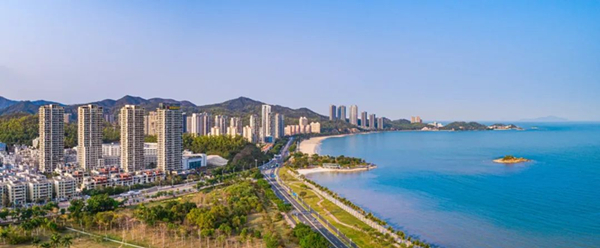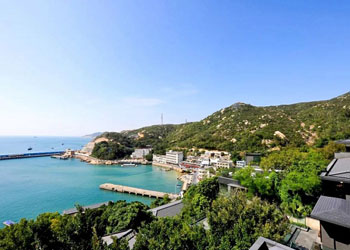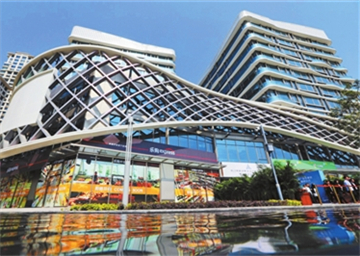Among very best in air quality, Zhuhai gets better yet
Zhuhai led the country in breathability in the first half of this year, with steady progress also seen across other environment indexes such as water quality, pollution treatment, and waste disposal, officials of the city Ecology & Environment Bureau said at a July 14 press conference.
According to the Ministry of Ecology & Environment, Zhuhai's air quality increased by four steps over the same period last year to rank 3rd among 168 key cities nationwide. Only Hainan Province's Haikou City and Lhasa of Tibet Autonomous Region scored higher. Zhuhai recorded 172 days with excellent or fine air -- 97.8 percent of the first six months -- and all indicators of the six pollutants met national standards.
Water quality of centralized water sources including the Dajingshan, Yangliao, Zhuxiandong, Qianwu, and Zhuyin reservoirs and the Guangchang, Huangyang River, and Zhuzhoutou pump stations were all up to standard through June.
The compliance rate of daytime ambient noise levels tallied at 85 percent while that of nighttime levels rose by 12.1 percent year-on-year to 70 percent, reported Chen Haiyuan, deputy director of the Zhuhai Ecology & Environment Bureau.

Enviable environment (shown is intersection of Meihua Road and Lovers Avenue at site of Haitian Sea & Sky Park) [Photo by Chen Jiazhe & Ye Qiuming / Guanhai App]
Supporting the achievements, a municipal task force screened problems from January to May, conducted treatment from June to August, and will carry out classified management from September to December in air pollution sources including industry, diesel trucks, and dust-creating activities.
To date, 35.3 percent of 44 black and odorous streams of the Qianshan River drainage basin have been treated. The Zhuhai and Zhongshan ecology and environment bureaus have also cooperated twice in cracking down on illegal actions that damage the water environment.
As of late June, all 452 problematic pollution discharge outlets on rivers citywide had been cleaned up, as had 70 out of 86 problematic sewage outfalls into the sea, according to Deng Guoqing, deputy director of the bureau.
In terms of sewage treatment, 97.2 km (60 miles) of pipelines were built across the city and 16.5 km (10 miles) renovated in urban areas in the first half of the year, while 133 rural sewage treatment facilities have been set up so far. Eight sewage-treatment plants were built this year, and construction of Fushan Number 1 (Industrial) Water Purification Plant in Doumen District, the first phase of the Gaolan Port Petrochemical Base Sewage Treatment Plant, and two industrial sewage-treatment plants will be completed by year end.
The second phase of an environmentally friendly biomass thermoelectric project in Doumen's Fushan Industrial Park came into operation in early July, bringing the incineration rate of Zhuhai household waste to 100 percent.
Moreover, Zhuhai processed 138 tons of medical waste since the first COVID-19 infection was confirmed on Jan 20. All medical waste was packaged and transported separately and processed the same day it was produced, said Liu Juntao, head of the Law Enforcement Supervision Section of the bureau.



